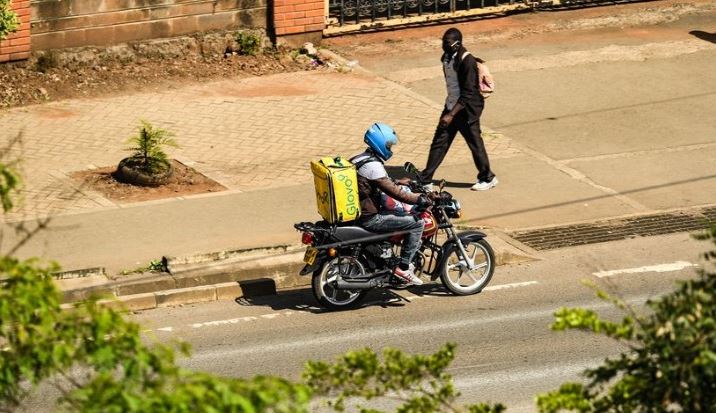
Kenyans embrace e-gifting as COVID-19 curtails gatherings

As Kenya continues its fight against COVID-19, Kenyans have been forced to change their lifestyles in one way or another.
The outbreak of the disease in the country prompted the government to impose a months-long nationwide nighttime curfew and a partial lockdown that meant little or no movement for many Kenyans.
Social gatherings were also banned, as authorities sought to clamp down on the spread of the disease.
With Kenyans unable to meet in large numbers, parties, social forums and other events such as weddings, burials, birthday celebrations and baby showers were either suspended or conducted in an entirely different way from the usual.
In the capital Nairobi, a group of friends decided to scrap unnecessary physical meet-ups, which then meant they could not visit one of them who had delivered a new born.
Rather than make their way to the friend’s house bearing gifts and cards, the group of friends decided to send her e-gifts then plan a visit later when the pandemic is brought under control.
“It is currently the only way to maintain the culture. It would be disastrous if you insist on visiting a new mother or attending a birthday party then you contract COVID-19 there. We will do more visits when the pandemic is contained,” said Selima a government auditor based in Nairobi.
e-gifting involves, among other things, mobile money transfers and online shopping delivered directly by a supplier.
These minimize the chances of contracting the disease or spreading it to people.
The e-gifting venture has been made possible by Kenyans widespread use of mobile money and digital platforms.
Kenya is one of the world’s leaders in mobile money services, after telecoms operator Safaricom pioneered its M-Pesa service 12 years ago to cater for Kenyans without access to the formal banking network and enable mobile money transfers.
Data from the Communications Authority of Kenya shows that as of December 2018, Kenya had 31.6 million active users of mobile money transfer services.
In a media briefing earlier this week, Health Cabinet Secretary, Mutahi Kagwe, urged Kenyans to refrain from congregating unnecessarily so as to help the country beat the pandemic.
“We discourage some of these practices that include visiting a mother to welcome the newborn. This is not the time to do this,” said Kagwe.
As of Sunday morning, Kenya had reported 9,726 COVID-19 infections and 184 deaths, according to the health ministry.




